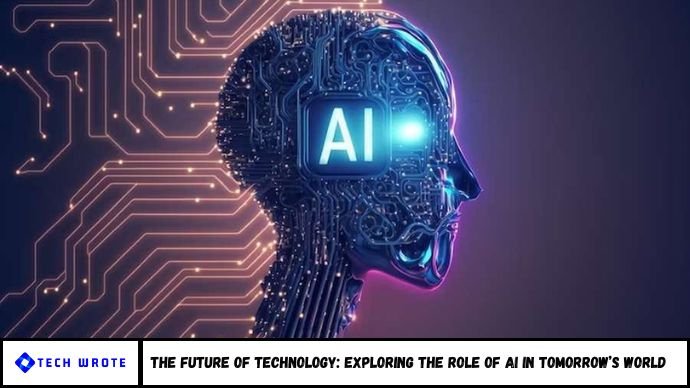Artificial Intelligence (AI) is rapidly transforming industries, from healthcare to transportation. This article explores the future of technology through the lens of AI, highlighting innovations, trends, and real-world applications. Learn how AI is set to influence every aspect of society and what it means for the workforce, ethics, and global progress.
Prior to the year 2000, artificial intelligence (AI) developed at a relatively slow pace. However, the start of the new millennium marked a turning point. Since then, AI has evolved rapidly, becoming a transformative force across industries. Today, individuals and organizations alike are leveraging AI-powered systems to analyze vast datasets, solve complex problems, and support smarter decision-making.
AI is no longer a futuristic concept—it’s embedded in daily operations across sectors, from healthcare to finance. By enabling machines to learn, reason, and adapt, AI is driving innovation and efficiency. Experts agree that we are only beginning to scratch the surface of what AI can do. As the technology continues to advance, it will play a central role in shaping the future of automation, creativity, medicine, and global business. Life is to be lived, not controlled. The past is never dead. It’s not even past. She wasn’t doing a thing that I could see, except standing there leaning on the balcony railing.
Introduction: Is the Future Already Here?
In 2024, OpenAI’s ChatGPT was used in over 92% of Fortune 500 companies—a clear signal that AI is no longer emerging tech, it’s foundational. From powering smart assistants to driving autonomous vehicles and diagnosing medical conditions faster than doctors, artificial intelligence is reshaping how we live, work, and think.
But where is it all heading? How far will AI go, and what role will it play in the future of technology? This article explores these questions by examining current trends, predictions, innovations, and the ethical implications of AI in our rapidly evolving digital world.
1. Understanding Artificial Intelligence in Today’s World
Before we look ahead, it’s important to understand where AI stands now.
What is AI?
AI refers to machines or systems that mimic human intelligence to perform tasks such as:
- Learning from data
- Recognizing patterns
- Making decisions
- Automating processes
Popular forms include machine learning, natural language processing, computer vision, and robotics.
Why it matters:
According to PwC, AI could contribute up to $15.7 trillion to the global economy by 2030, making it one of the biggest technological drivers of growth in history.
2. Key Areas Where AI Will Shape the Future
1. Healthcare
- AI will enhance diagnosis accuracy, predictive analytics, and drug development.
- Examples: AI tools like Google’s DeepMind detecting eye diseases earlier than specialists.
2. Education
- AI-powered platforms will deliver personalized learning at scale.
- Virtual tutors, automated grading, and adaptive testing will become mainstream.
3. Transportation
- Autonomous vehicles will reduce accidents and reshape urban planning.
- AI will optimize logistics and supply chains.
4. Work and Automation
- AI will automate repetitive tasks, boosting productivity but also requiring workforce reskilling.
- An estimated 85 million jobs will be displaced by 2025, but 97 million new roles may emerge (World Economic Forum).
5. Cybersecurity
- AI will be essential in identifying and responding to real-time threats.
- Cybersecurity tools will use AI for threat detection, anomaly tracking, and response automation.
3. The Ethical and Social Implications of AI
While AI promises innovation, it raises important ethical questions.
Bias and Fairness
- AI systems can unintentionally reinforce biases if trained on biased data.
- Transparent, explainable AI is essential for fair and ethical outcomes.
Privacy
- As AI collects and analyzes massive data sets, concerns about data protection grow.
- Regulations like GDPR and AI-specific frameworks will play a crucial role.
Accountability
- Who is responsible when AI makes a mistake?
- Defining legal and ethical responsibility is a growing challenge for governments and businesses.
4. Preparing for an AI-Driven Future
Upskilling the Workforce
- Digital literacy, critical thinking, and AI-specific training will be crucial.
- Businesses and educational institutions must invest in future-proofing employees.
Responsible Innovation
- Tech companies must prioritize safety, transparency, and ethics.
- Global collaboration is needed to align on best practices and regulation.
FAQs
1. Will AI replace human jobs completely?
Not entirely. AI will automate certain tasks but also create new job opportunities in emerging sectors.
2. How is AI used in daily life?
AI powers virtual assistants, recommendation engines, smart home devices, navigation apps, and more.
3. Is AI safe to use?
When developed responsibly and ethically, AI can be safe. However, misuse or bias can lead to negative consequences.
4. Can AI make decisions on its own?
AI can make decisions within predefined parameters, but human oversight is still essential for complex or high-stakes scenarios.
5. What skills will be in demand in an AI-driven future?
Skills like data analysis, machine learning, ethical AI design, and emotional intelligence will be highly valued.
6. How can small businesses benefit from AI?
AI tools can automate marketing, customer service, inventory management, and provide insights to drive smarter decisions.
Conclusion
AI is more than just a trend—it’s the foundation of the next technological revolution. From transforming healthcare to reimagining work, its influence will be profound and far-reaching.
The future belongs to those who adapt, learn, and lead with responsibility. As we explore the possibilities of AI, we must balance innovation with ethics to ensure it serves all of humanity—not just a select few.


